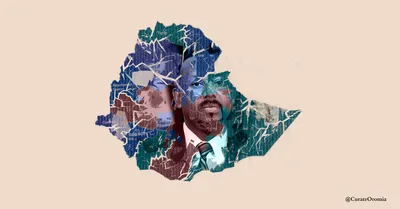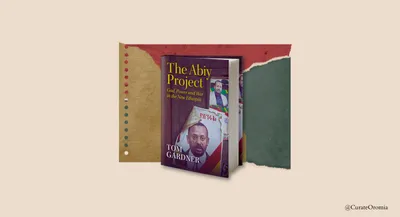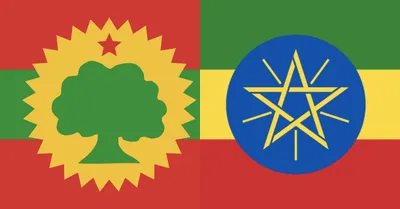Oromo politics: The Politics of Conspiracy
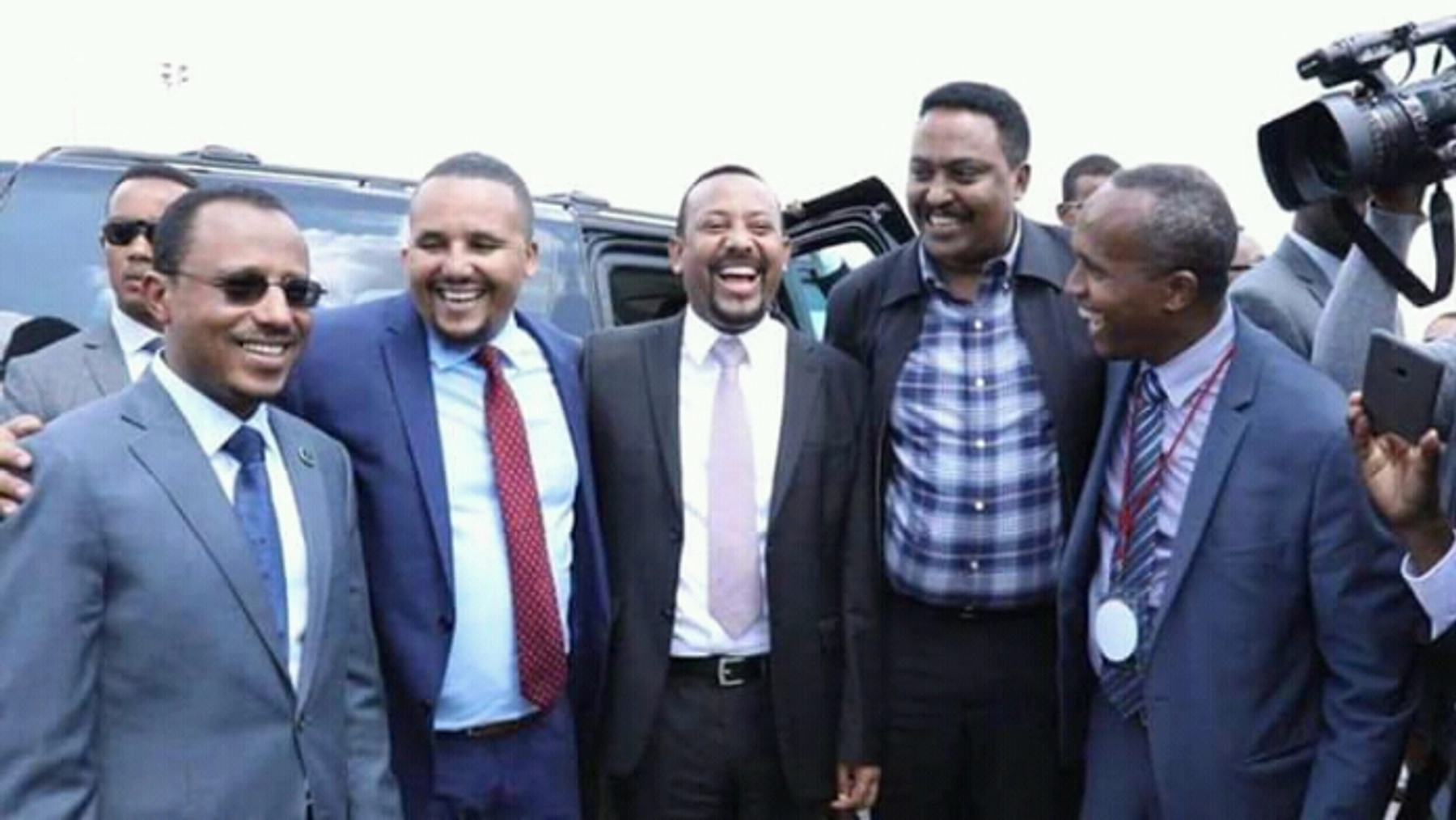
Reception of Prime Minister Abiy Ahmed during his visit to the U.S. shorty after he assumed power: (From left to right) Lemma Megeressa, Jawar Mohammed, Abiy Ahmed and Workneh Gebeyehu.
Since the inception of the Oromo national struggle, there was a debate on how to define the Oromo struggle. There were two schools of thought: one defined the Oromo situation as a colony like that of India under the British empire, and the other defined it as an imperial expansion like that of Northern Ireland or Texas.
These two schools of thought produced distinct political objectives: one called for the liberation of Oromia and the realization of an Oromo republic, while the other opted for the democratization of Ethiopia.
This particular debate, which didn’t involve the larger Oromo public, took place among those who were part of the “Student Movement” who are now veteran political leaders.
Needless to say, they didn’t manage to reconcile their differences and offer a way forward. Their disagreement culminated in the departure of a faction of the Oromo Liberation Front (OLF) led by Jarra Abba Gada from the transitional government in 1991 and a disastrous conflict ensued in Oromia. Soon after, the remaining OLF faction withdrew from the transitional government as well.
This did not change and for now, the democratization of Ethiopia seems to be the mainstream Ideology. Despite independence being the anthem of the Oromo struggle, politicians continue to defend the democratization of Ethiopia, mainly due to the belief that the Oromo are incapable of building a state, not because Ethiopia is worth saving. In many ways, the lack of open debate has caused confusion, and feeling of betrayal and inflicted huge losses to the Oromo national struggle.
Confusion births Gandummaa
In the absence of an open debate, people are left to build their own assumptions. This, coupled with the invisibility of the elite class, and refusal to answer public questions, left people huddled in their bubbles, where they find the space to assert their values, aspirations and vision for their future, even when that vision of the future, such as independence, for instance, is discouraged by Oromo elites.
When the political stance of a certain political group is questioned, many people hold on to their assumptions and resort to some other factors to maintain it. Those factors are mainly gandaa, a relatively new and imported concept to Oromos, and religion. This practice of holding to one’s gandaa and religion has manifested itself negatively in the Oromo struggle.
When there is a political disagreement between groups/individuals, the conversation is easily manipulated to invoke Gandaa or religion. This is due to the absence of a culture of open debate. In that absence, people rely on the information they obtain from their social circles which are usually influenced by the factors mentioned above (Gandaa and Religion.)
Moreover, there is a collective failure in understanding that the scrutiny of an individual political stance is not equal to hate or jealousy; it is in fact a practice of raising legitimate concerns about the future fate of one’s people. This stems from a history of personalization of political disagreements among personalities and failure to reel in the instinct to invoke gandaa and religion in the process. Sadly, in the era of technological advances and easy access to information, the practice of separating facts from emotion is yet to be realized in the Oromo political discourse.
Betrayal and collapse of Moral compass
As a result, the absence of open debate brought about the moral corruption of the elite class and deprived the Qabsoo of a compass to rely on. In 2018, this became apparent.
Before the triumph of the Oromo protests, standing up for the people and the truth and demanding accountability was the moral compass everyone operated within. After its success, cozying up to the Oromo People’s Democratic Organization (OPDO), an organization that hunted thousands of Oromos and sent many to their graves, subjected a thousand others to unimaginable torture and years of incarceration, became the new compass everyone operated within. In effect, putting both predator and prey on a similar moral footing and calling the predators “Sabboontota”.
Not many people payed attention to the effects of drawing a moral equivalence between victims and perpetrators in the long run. The demands for justice by people incarcerated for years without due process and sustained physical and psychological abuse were ignored. Instead, the perpetrators were praised. But there was no debate, whatsoever, on the transitional justice demanded by those wronged by the state.
No compensations, no transitional justice, no commemoration for victims of state violence and many were denied a chance to speak about their experience as it would paint the “Warra keessaan qabsaa’an” negatively. This was done to maintain a moral equivalence between victims and perpetrators.
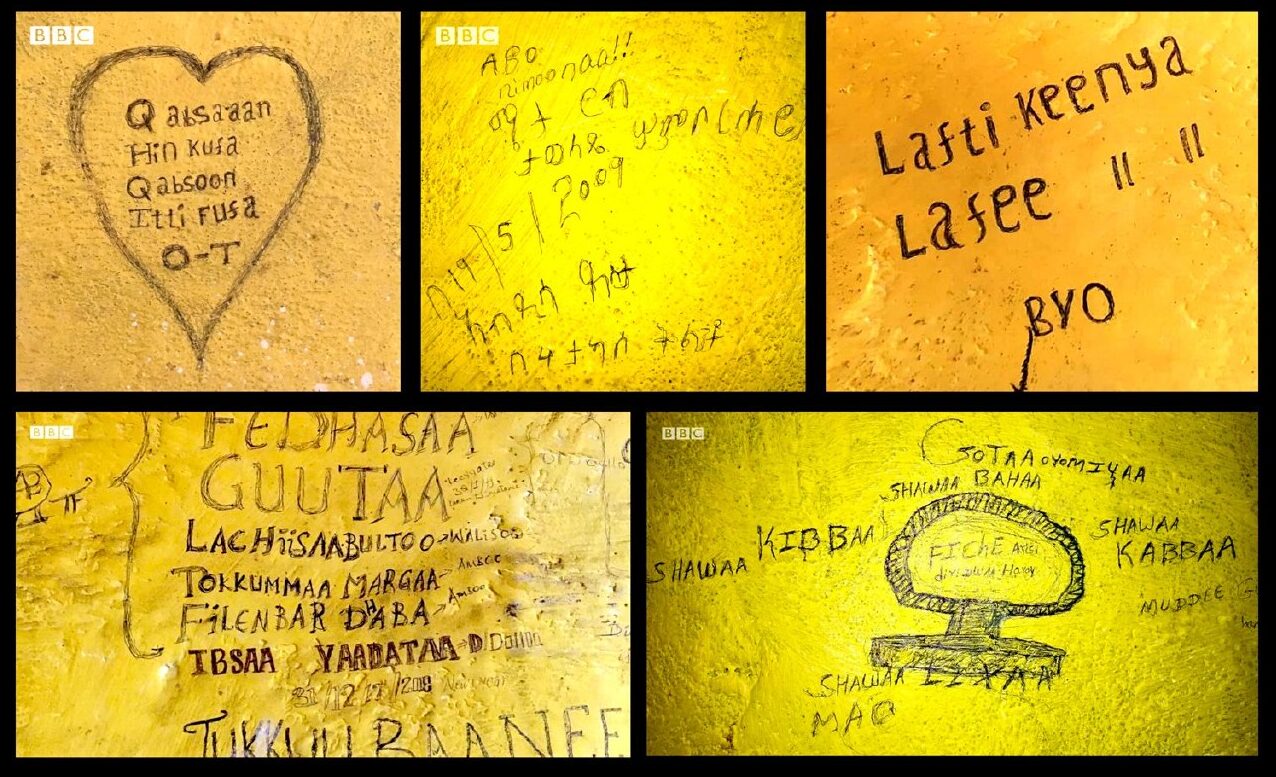
Unconditional forgiveness, much like the South African experience, does not work but rather damages the collective morality of society in the long run. We see continued arguments that draw an equivalence between perpetrators and victims. The elite continues to equate state-sponsored mass killings, incarceration, extra-judicial killing, conscription, rapes, forced evictions and starvation with people fighting against these injustices.
Vicious circle: breaking promises and making new ones
Unless someone disagrees, the founding manifesto of the OLF, founded in 1973 by members of the Macha-Tulama Welfare Association, soldiers who fought in the Bale Revolt and members of the then Oromo Liberation Army, outlined that the goal of the organization was “to lead the Oromo people in the struggle against Ethiopian colonialism and oppression and on to independence.” After nearly two decades of armed struggle and due to disagreements on the mechanisms that would achieve said goals, the OLF as part of the United Oromo People Liberation Forces joined the transitional government and more or less participated in writing the current constitution.
An action many would argue was followed by a chain of events that led to OLF’s defeat at the hands of EPRDF and their subsequent departure from Ethiopia. This mistake was again repeated in 2018 after 5 years (Some estimate 7 years counting the Muslims Protests of 2011 as part of the Oromo Protests) of protests by university and high school students that resulted in the overthrow of the TPLF-led EPRDF.
The vague nature of these talks between OPDO and opposition Oromo parties and political figures remains the subject of many conspiracies surrounding the 2018 arrangement.
The need for open dialogue with people and the dismantling of the guardianship role the Oromo elite enjoy is vital at this stage. But more importantly, the Oromo Liberation Army needs to cease the politics of appeasement and provide the Oromo with the option of an Independent Oromia instead of tiptoeing around the issue and offering no alternative to dialogue with the Empire.
Finally, I would like to stress that the case for an independent Oromia, despite arguments against it, is important for stability in the Horn of Africa, if not a must.
We need your support
We trust you found something of value in this article. If so, we kindly ask you to consider helping Curate Oromia continue its work.
If you believe in the importance of independent voices and honest reporting, we invite you to support our efforts through our GoFundMe campaign.
Every contribution, however small, goes directly to our writers and the expansion of our reach.
Thank you for your support.

